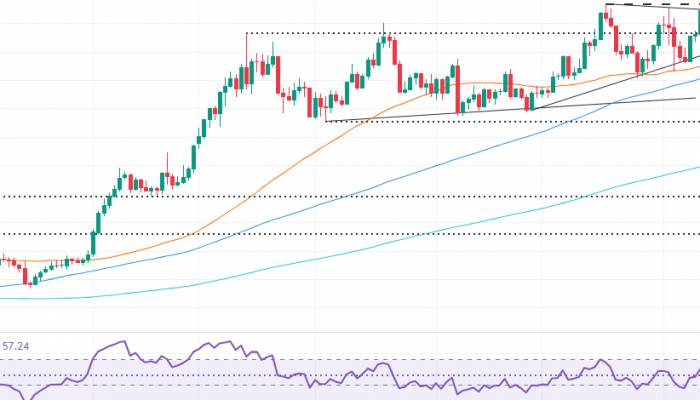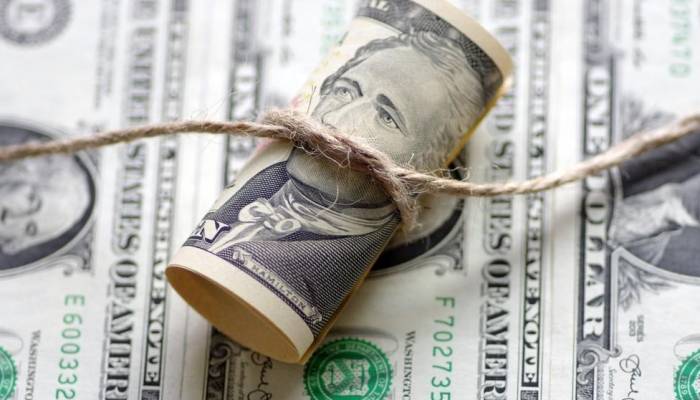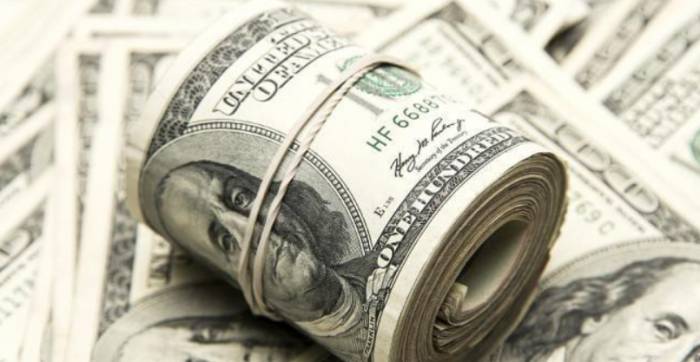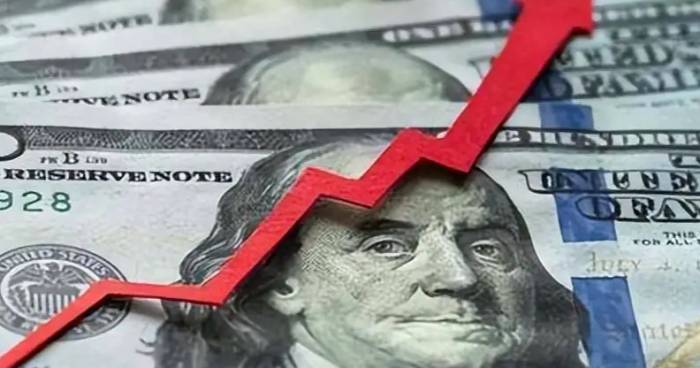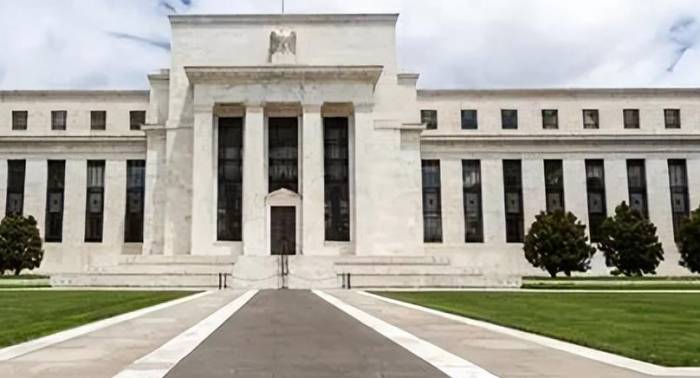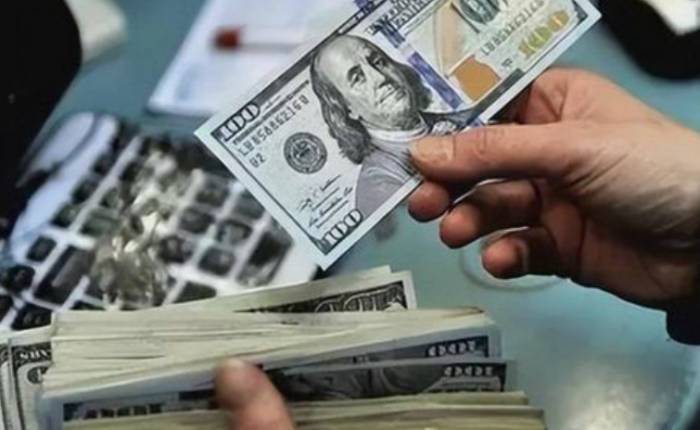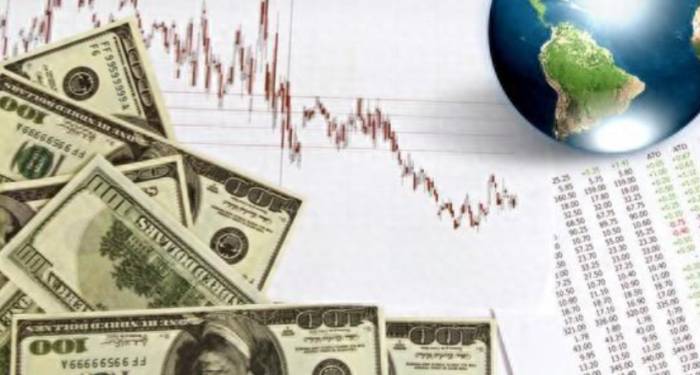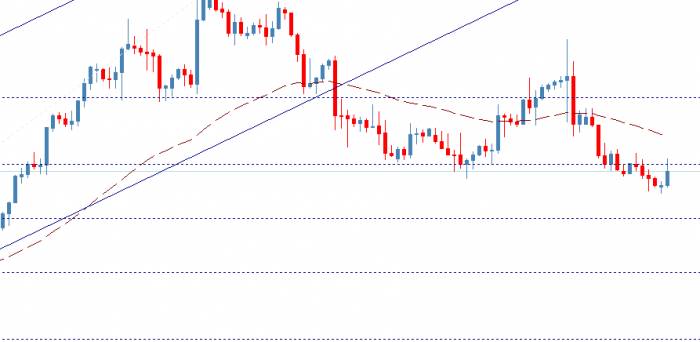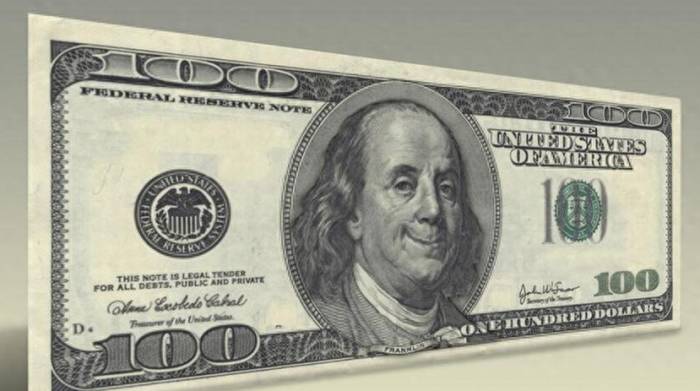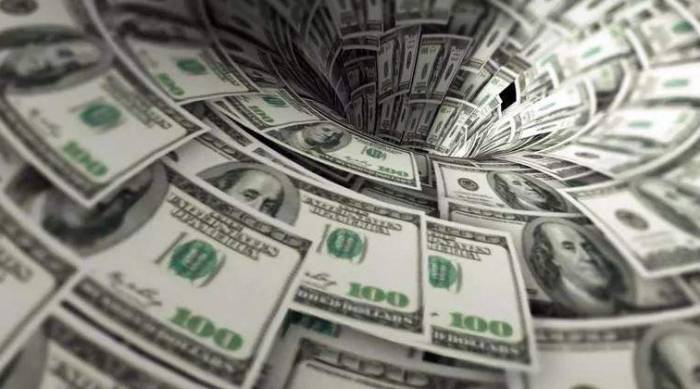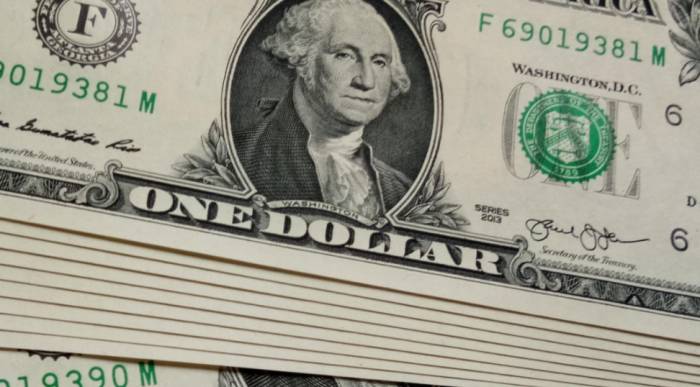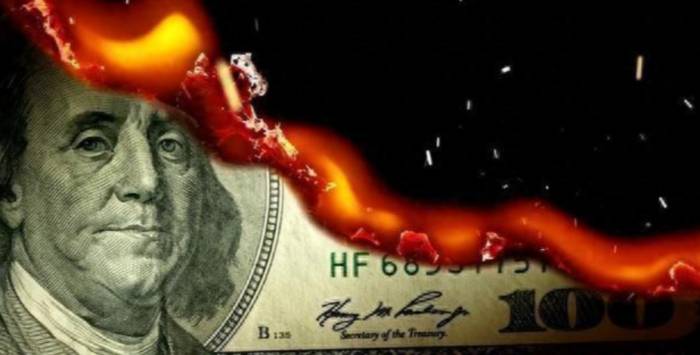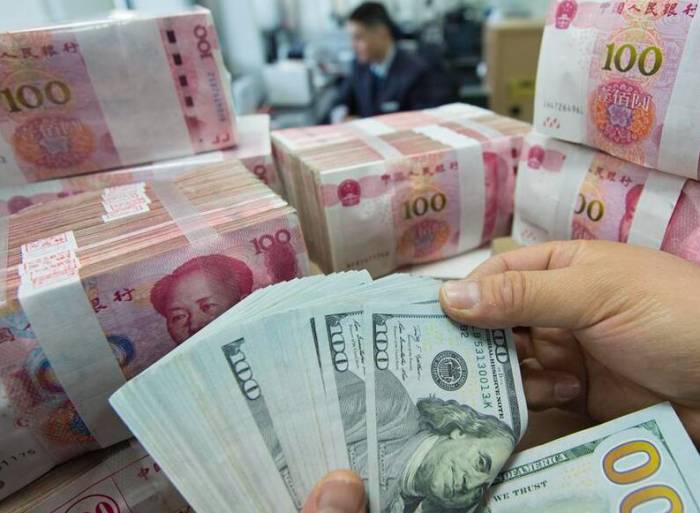Financial News Agency on Monday (September 16th), due to the increased expectation that the Federal Reserve may significantly cut interest rates this week, the US dollar fell, and the Japanese yen rose to a new high against the US dollar in nearly two years during the trading session.
Spot gold continued its upward trend, hitting a historical high during the trading session.
Closing prices on September 16th: Foreign Exchange: EUR/USD closed at 1.11315; GBP/USD closed at 1.32112; USD/JPY closed at 140.544; AUD/USD closed at 0.67508; USD/CAD closed at 1.35819; USD/CHF closed at 0.84444. Commodities: Spot gold closed at $2582.34 per ounce; Spot silver closed at $30.715 per ounce; NYMEX crude oil closed at $70.09 per barrel; Brent crude oil closed at $72.75 per barrel.
Important News Review: 1.
On Monday, spot gold continued its upward trend, setting a historical high during the trading session.
On Tuesday, investors will welcome the key US retail sales data, whose performance may have a significant impact on this week's Federal Reserve decision.
It is expected that after the data is released, the gold market will fluctuate sharply.
UBS stated that they are closely monitoring retail sales and industrial production data, and the weakness of these data may affect the Federal Reserve's decision to lower the federal funds rate by 50 basis points instead of 25 basis points.
Betting on a 50 basis point rate cut by the Fed surges!
"Terrifying data" is of great significance, how to trade after gold prices hit a new high?
2.
This week's interest rate decision by the Federal Reserve is more complex than it seems.
The real issue is not how much it should be reduced, but where the interest rate should be reduced.
The answer is that it should be reduced further, providing a reason for a half percentage point rate cut.
Can't wait!
The Fed should cut rates by 50 basis points, not 25 basis points.
3.
Bloomberg reported on Monday (September 16th) that as traders increasingly favor a 50 basis point rate cut by the Federal Reserve this week, the US dollar plummeted to near its lowest level since January.
After weeks of debate on whether the Federal Reserve will start its easing policy by cutting rates by 25 or 50 basis points, traders are currently leaning towards the latter option.
Major shift!
Traders expect the Fed to be more likely to cut rates by 50 basis points, and the US dollar plummets to its lowest point since January.
4.
Citigroup strategists pointed out that both Donald Trump's and Kamala Harris's political platforms seem to have a negative impact on the US stock market.
Among them, the Democratic candidate Harris's plan to raise corporate taxes has a particularly significant impact on the stock market.
Citigroup: Trump and Harris's political platforms are both unfavorable to the stock market.
5.
On Monday, Fundstrat's research director Tom Lee said that after the Federal Reserve announced a major interest rate decision on Wednesday, the stock market is about to rise for several weeks.
"There are some positive support factors at the moment," Lee said in an interview with CNBC.
"We know the Fed will take some rate-cutting measures.
Given that inflation data is supportive, and the labor market also needs some support, I think this will bring some confidence to the market.
I think our trading situation will indeed be very good before the meeting, and even one or two weeks after the meeting."
Wall Street big bull: Regardless of the extent of the rate cut, the stock market will rise.
6.
Reuters reported that despite three rate cuts since June, compared to neighboring countries like the United States, Canadian consumers are still feeling greater pressure, because the US Federal Reserve has not yet started to cut interest rates.
Persistent financial pressure reflects changes in Canadian mortgage structures, soaring rents, and the heavy debt burden of many families, all of which have reduced people's disposable income.
Canada's three rate cuts have not been effective, and the cycle of "debt pain" for the people is long.
7.
On Monday, Apple's stock price fell, triggering a broader sell-off of technology stocks and putting pressure on the Nasdaq Composite Index.
Previously, several analysts said that the delivery time of the new iPhone 16 Pro model indicates that demand is weaker than expected, possibly due to the delay in the launch of key artificial intelligence features.
Apple released the highly anticipated iPhone 16 series last week, which is designed around its artificial intelligence software Apple Intelligence.
Apple's stock price fell by more than 3%, triggering a sell-off of technology stocks!
Analysts warn: iPhone 16 demand is weak.
The foreign exchange market fell on Monday due to increased expectations that the Federal Reserve may significantly cut interest rates this week.
The Japanese yen rose to a new high against the US dollar during the trading session.
The market generally expects the Federal Reserve to announce at least a 25 basis point rate cut at the September policy meeting that ends on Wednesday, but last week's reports have led traders to speculate that the Federal Reserve may take a more aggressive 50 basis point rate cut.
The US dollar index (DXY), which tracks the US dollar against six major currencies, closed down 0.45% at 100.66 on Monday.
According to CME's "FedWatch" tool, the probability of a 50 basis point rate cut by the Federal Reserve in September has risen to 67.0%, a significant increase from 15% last week.
Bannockburn Global Forex market strategist Marc Chandler said: "There is only one factor today, which is a continuation of last week's situation: after the CPI was announced, the market was reassured about a 25 basis point rate cut, but many people suspect that the Federal Reserve deliberately released the news to bring the 50 basis point rate cut back into consideration.
The market has reacted accordingly, and in fact, they are still adjusting."
US Treasury yields continued to fall before the Federal Reserve meeting, especially as the probability of a 50 basis point rate cut increased.
The 2-year US Treasury yield, which is more closely related to monetary policy expectations, fell by 2.5 basis points to 3.5509%, compared to about 3.94% two weeks ago.
As market expectations for a 50 basis point rate cut by the Federal Reserve this week increased, US congressmen also called for a more significant unconventional rate cut.
The content of the letter published locally on Monday showed that three US Democratic senators, Elizabeth Warren, Sheldon Whitehouse, and John Hickenlooper, jointly wrote a letter to Federal Reserve Chairman Powell, urging a decision to cut rates by 75 basis points at the latest FOMC meeting on September 17th and 18th.
The letter said: "If the Federal Reserve is too cautious in cutting interest rates, it will unnecessarily expose our economy to the risk of recession.
The committee must consider more aggressive 'front-loaded' rate cuts to alleviate potential risks facing the labor market."
This letter highlights the tricky political background facing the Federal Reserve as it prepares to cut rates for the first time since 2020 to boost the weakening job market.
Although Federal Reserve officials have repeatedly stated that policy decisions will not be influenced by partisan factors, they still face severe scrutiny from multiple political angles.
In terms of major currency pairs, USD/JPY closed down 0.18% on Monday, at 140.54.
It fell to a low of 139.58 during the Asian trading session, the lowest since July 2023.
Investors are watching the Bank of Japan's interest rate decision on Friday, expecting it to maintain the short-term policy interest rate target at 0.25% after two rate hikes this year.
Bank of Japan members have expressed their intention to see higher interest rates, and the narrowing interest rate differential between Japan and other major currencies has driven the yen higher, leading to the liquidation of tens of billions of dollars in yen carry trades.
EUR/USD rose 0.51% on Monday, closing at 1.1132.
GBP/USD rose 0.65%, closing at 1.3211.
The stock market was calm on Monday (September 16th), with the Dow Jones Industrial Average hitting a new high.
Wall Street traders are preparing for this week's Federal Reserve policy, continuing to push the stock market higher.
The S&P 500 rose 0.13%, closing at 5633.09 points; the Dow Jones Industrial Average rose 228.30 points, up 0.55%, closing at 41622.08 points, setting a new closing high.
Meanwhile, the technology stock-heavy Nasdaq Composite Index fell 0.52%, to 17592.13 points.
Before the Federal Reserve made its decision, strategists from Morgan Stanley, Goldman Sachs, and JPMorgan Chase all said that the impact of the rate cut on the stock market is not as significant as its impact on the health of the US economy.
"Unless there is a force majeure event, interest rates will be lowered this week," said Callie Cox of Ritholtz Wealth Management.
"A rate cut (whether 25 or 50 basis points) may have a negligible impact on the economy.
The path and magnitude of rate cuts over the next year or so are the most important."
European stock markets closed lower on Monday, with investors preparing for this week's interest rate decisions from the Federal Reserve and the Bank of England.
The Stoxx 600 index temporarily closed down 0.16%, at 515.11 points.
However, the performance of various sectors and major exchanges was mixed.
Technology stocks fell 1.26%, continuing the downward trend after the opening of the US market, with Apple's performance putting pressure on it.
The FTSE 100 index closed at 8278.44 points, up 0.06%; the German DAX index closed at 18633.11, down 0.35%; the French CAC 40 index closed at 7449.44, down 0.21%; the Italian FTSE MIB index closed at 33569.98, unchanged; the IBEX 35 index closed at 11581, up 0.35%.
The commodity market was supported by the weakening US dollar and the prospect of a significant rate cut by the Federal Reserve this week, with gold prices on Monday expanding their gains to approach historical highs.Spot gold closed up 0.14% on Monday, at $2,582.34 per ounce; the intraday high touched $2,589.68 per ounce, setting a new record high.
Phillip Streible, Chief Market Strategist at Blue Line Futures, stated that the market has already priced in a 50 basis point rate cut by the Federal Reserve, which is why gold prices are so high.
If the Fed ultimately only cuts rates by 25 basis points, gold prices would fall.
The focus this week is on the Federal Reserve's rate decision to be announced on Wednesday.
On Monday, traders further increased their bets on a 50 basis point rate cut by the Fed this week.
Since gold does not bear interest, a low-interest-rate environment can reduce the opportunity cost of investing in gold, making it more favorable.
At 20:30 Beijing time on Tuesday, the U.S. Census Bureau will release retail sales data for August.
Economists expect that the U.S. retail sales monthly rate for August is expected to decline by 0.2%, after a 1% increase in July.
The U.S. retail sales data, known as "terror data," usually has a significant impact on the financial markets and is likely to affect the trends of assets such as the dollar and gold.
CNBC host and former hedge fund manager Jim Cramer referred to it as the last important data before the Fed makes a decision.
He said that the report is a good indicator of consumer spending, and he predicts that the data will be weak.
UBS stated that they are closely monitoring retail sales and industrial production data, and weak data may affect the Fed's decision to lower the federal funds rate by 50 basis points instead of 25 basis points.
In terms of silver, spot silver closed slightly up by 0.04% on Monday, at $30.715 per ounce.
In terms of crude oil, U.S. WTI crude oil closed up by more than 2% on Monday.
The ongoing impact of Hurricane Francine on crude oil production in the U.S. Gulf of Mexico offset concerns about demand, driving oil prices higher.
WTI crude oil prices rose above $70 per barrel for the first time in two weeks, with traders waiting for the Fed's rate cut decision on Wednesday, focusing on the magnitude of the cut.
The October delivery West Texas Intermediate (WTI) crude oil futures on the New York Mercantile Exchange rose by $1.44, or 2.1%, to close at $70.09 per barrel, the highest closing price since September 3.
The November delivery Brent crude oil futures rose by $1.14, or 1.6%, to close at $72.75 per barrel, also the highest level in nearly two weeks.
After Hurricane Francine struck, nearly one-fifth of crude oil production and 28% of natural gas production in the Gulf of Mexico remain shut down.
Analysts say that the storm's impact on energy production in the Gulf of Mexico has not been eliminated, with a greater impact on production than on refining, and oil prices are still bullish in the short term.
Blue Line Futures analysts wrote in a report to clients on Monday: "This week, it is recommended to be cautious and selective in building positions, as volatility in the crude oil market may amplify."




